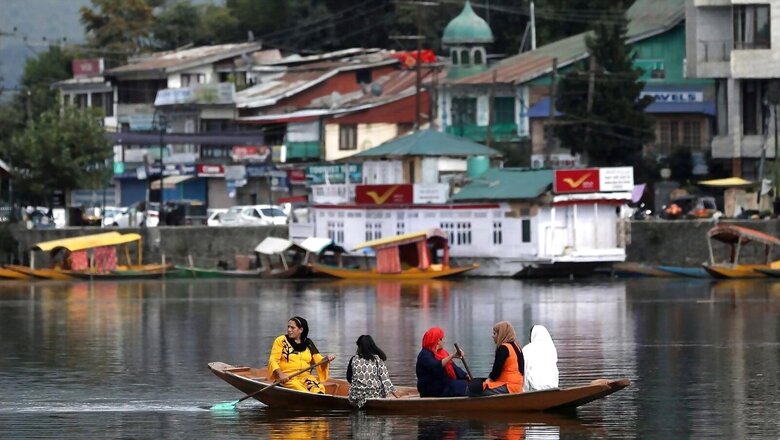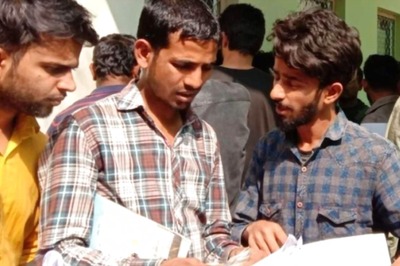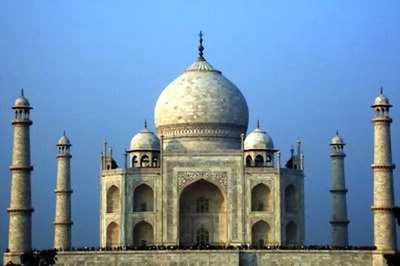
views
The entire travel and tourism industry is still in the process of recuperating from the major blow that it faced when Covid-19 struck. There are several tenets of the industry which are expected to benefit from the upcoming budget session. Experts feel that the travel, tourism and the overall hospitality sector need some relief from the government in order to expand various segments of the respective industry.
Ritesh Agarwal, founder and group CEO, OYO, said that while tourism and hospitality in India is witnessing a boom, the industry still requires government’s support to fully recover.
One key demand from the government would be to grant industry status to tourism and accordingly incentivise all states upon implementing tourism friendly policies.
“In tandem with this, we would urge the government to allocate a budget for setting up homestays in the lesser explored and offbeat destinations across India, for promotion of rural and agriculture tourism. Implementing such initiatives on a national level will create employment avenues for thousands and provide the much-needed boost to the economy. A community that stands to benefit greatly from this are farmers,” Agarwal said.
The government can set up a special fund to help farmers in building homestays. This would not only help the farmers with a second source of income, but also give the travellers a taste of real India and the most authentic experiences we have to offer.
Agarwal urged the government to reconsider 12% GST being currently levied on room tariff below Rs 1000 per night. With the current geo-political tensions and inflationary pressures, travel cost has risen. The current rates make it difficult for people to find an affordable stay when travelling. This also
negatively impacts the earnings of small hoteliers.
“We recommend exemption of budget hotels from GST for the larger good of the hospitality and tourism sector,” Agarwal demanded.
Under the RBI infrastructure lending norm criteria, hotels built with Rs 200 crore investment get the infrastructure status. “We urge the government to bring down the same to Rs 10 crore to give a boost to budget segment hotels. This will help hotels avail term loans at lower rates of interest and also benefit from longer repayment periods.”
EaseMyTrip’s co-founder and CEO Nishant Pitti said that as the pandemic becomes endemic, it is important for both the central and state governments to work in tandem to facilitate this sector and support it.
“The government could include travel and tourism in the concurrent list to provide it with industry status, which will help in making it more structured,” Pitti urged.
A greater focus on the industry’s revival is required, which can be done by implementing an e-visa fee waiver for tourist visas, and domestic income tax travel credit for Indian citizens and Indian companies, Pitti added.
The Emergency Credit Line Guarantee Scheme (ECLGS) should also be extended to tourism and hospitality. In addition to this, Pitti said that the industry is hoping that with the upcoming budget, the government will strive to increase the disposable income of the middle classes to aid the rise of discretionary spending.
“This can be done by taking concrete steps to improve the cash flows, enable access to easy credit, and reduce the income tax rates and GST tax rates,” Pitti added.
Sunil Gupta, MD and CEO, Avis India, too underlined that during Covid, this sector was among the worst affected and is still far from pre-Covid levels and supporting this sector will pay rich dividends to the economy.
Gupta added that the budget offers the government the perfect opportunity to do so by formulating provisions that aid the sector to recover from the losses it has borne during the last couple of years.
“As a travel-oriented business, we expect higher budgetary allocation to infrastructure to promote travel,” Gupta urged, adding that the industry is looking forward to the government granting industry status to the travel and tourism sector, which will help in the regularisation of policies and processes and better access to finance.
Gupta suggested measures like rationalisation of taxes, reduction in indirect taxes and related exemptions could also benefit the sector to a great extent by creating a favourable environment for people to spend their disposable income on travel.
The introduction of soft loans with lucrative terms can also act as a stimulant for the sector, which is still on its journey to post-pandemic revival.
As per India Tourism Statistics 2022, India received 677.63 million domestic tourist visits in 2021, an increase of 11.05 percent from 610.22 million in 2020. Due to worldwide pandemic limitations, fewer foreign visitors came. As a result, India received 1.05 million foreign tourist visitors in 2021 than that in 2020 (7.17 million), representing a negative 85.29 percent growth rate.
Read all the Latest Business News here




















Comments
0 comment